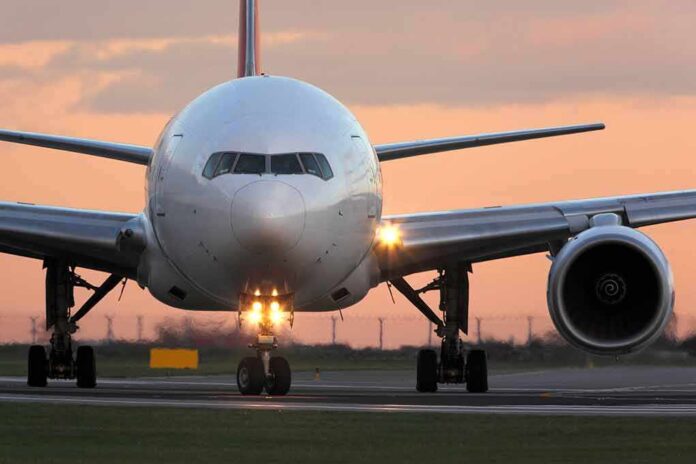Well, folks, buckle up because we’re about to take off on a turbulent journey through the skies of corporate tech disasters. In a world where we’ve become increasingly dependent on digital systems, it seems even our beloved airlines aren’t immune to the occasional software hiccup. But when that hiccup turns into a full-blown technological meltdown, the consequences can be as devastating as finding out the in-flight movie is a rom-com starring Adam Sandler. Let’s dive into Delta’s recent $500 million setback and see what lessons we can learn from this high-altitude headache.
The Costly Glitch
On July 19, 2022, Delta Air Lines experienced a massive technology outage that sent shockwaves through its operations. The culprit? A faulty CrowdStrike security update affecting Microsoft applications globally. This seemingly minor glitch snowballed into a catastrophic event, leaving Delta with a half-billion-dollar hole in its pocket and thousands of passengers stranded.
“This cost us a half a billion dollars,” Delta CEO Ed Bastian bluntly stated, highlighting the severity of the situation.
The financial impact was felt over five days, encompassing both lost revenue and customer compensation. With over 5,000-6,000 flight cancellations, Delta’s reputation took a nosedive along with its profits.
The Aftermath and Legal Ramifications
In the wake of this costly debacle, Delta isn’t simply licking its wounds. The airline has taken decisive action, hiring law firm Boies Schiller Flexner to pursue claims against Microsoft and CrowdStrike for compensation.
“We’re looking to make certain that we get compensated, however they decide to, for what they cost us,” Bastian affirmed, making it clear that Delta means business.
However, legal experts warn that this might not be a straightforward battle. Jeffrey Vagle, a technology law expert, points out, “It’s very difficult to hold software vendors liable for their software because of these liability limitations that are in most software terms and conditions.”
The Broader Implications
This incident raises critical questions about the vulnerability of critical industries to technology failures. As we increasingly rely on AI and automated systems, the potential for similar disruptions grows.
“We’re reaching an age where a lot of functions that were typically done by humans — booking airlines, booking hotels, etc. — are going to be delegated to AI agents. And so these types of issues are going to become more prevalent,” warns Ifeoma Ajunwa, a law professor at the University of North Carolina.
The incident has also caught the attention of the U.S. Department of Transportation, which is investigating Delta’s response to the outage. This scrutiny could lead to broader discussions about regulatory oversight and industry standards for technology resilience.
Looking Ahead
As Delta grapples with the aftermath of this costly incident, the airline industry as a whole must reckon with the challenges of operating in an increasingly digital world. Bastian’s question, “How do you rethink the fortification?” is one that all industries reliant on technology must consider.
The Delta debacle serves as a stark reminder of the high stakes involved in our digital dependence. As we move forward, finding the right balance between technological advancement and robust safeguards will be crucial to prevent future half-billion-dollar mistakes.
Sources:
“This cost us a half a billion dollars” – Ed Bastian
“We have no choice” – Ed Bastian
“You can’t come into a mission critical 24/7 operation and tell us we have a bug” – Ed Bastian
“We’re looking to make certain that we get compensated, however they decide to, for what they cost us” – Ed Bastian
“It’s very difficult to hold software vendors liable for their software because of these liability limitations that are in most software terms and conditions” – Jeffrey Vagle
“Delta is maybe not necessarily looking to win in court, but to force a settlement. Because I don’t think CrowdStrike wants to be in the news any longer” – Jeffrey Vagle
“How do you rethink the fortification?” – Ed Bastian
“We thought we had the best between Microsoft and CrowdStrike. In fact, they’re integrated. That’s what caused a lot of the slowdowns because it was hard to kind of decouple them” – Ed Bastian
“We’re reaching an age where a lot of functions that were typically done by humans — booking airlines, booking hotels, etc. — are going to be delegated to AI agents. And so these types of issues are going to become more prevalent” – Ifeoma Ajunwa
“What sort of safeguards, what sort of redundancy do they want to build into the system, such that when this happens it doesn’t cripple the whole airline infrastructure?” – Ifeoma Ajunwa
“And if airlines tell travelers that they will not offer a refund or give travelers the runaround, passengers will continue to be advised to file a complaint with the DOT Office of Aviation Consumer Protection” – Pete Buttigieg
“We’re not looking to wipe them out, but we’re looking to make certain that we get compensated however they decide to for what they cost us” – Ed Bastian
“half a billion dollars in five days” – Ed Bastian
- https://www.fox5atlanta.com/news/delta-ceo-says-crowdstrike-outage-cost-airline-half-billion-dollars
“We’re by far the heaviest in the industry with both, and so we got hit the hardest in terms of the recovery capability” – Ed Bastian
“If you’re going to be having access, priority access to the Delta ecosystem in terms of technology, you’ve got to test the stuff. You can’t come into a mission-critical 24/7 operation and tell us we have a bug” – Ed Bastian
“We are aware of the reporting, but have no knowledge of a lawsuit and have no further comment.” – CrowdStrike spokesperson
- https://www.fox5atlanta.com/news/delta-ceo-says-crowdstrike-outage-cost-airline-half-billion-dollars











